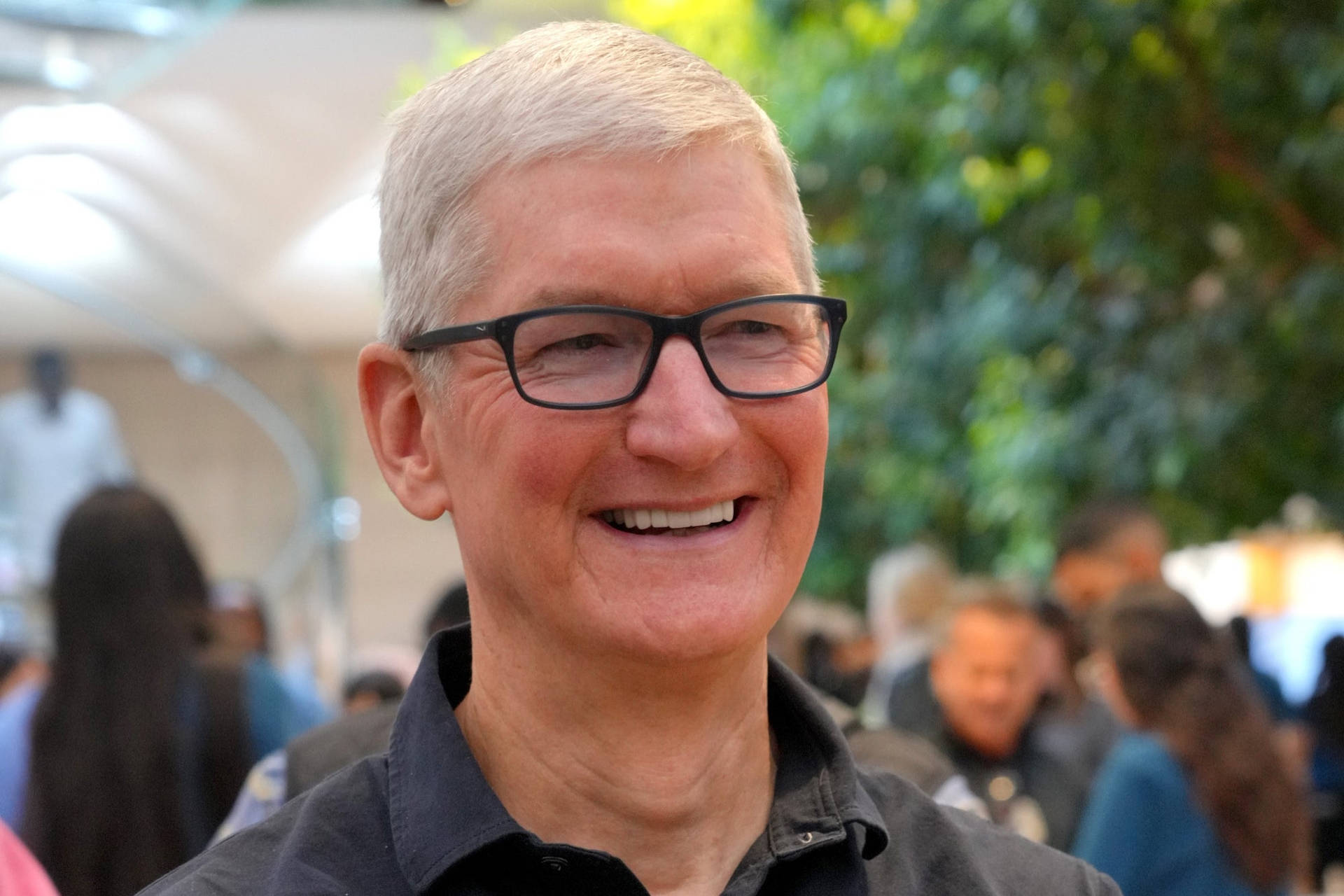Tim Berners-Lee Net Worth: The Architect Of The Web's Financial Standing
When we think about the internet, it's pretty wild to consider how much it has changed our daily lives, isn't it? From sending quick messages to working together on documents online, so much of what we do now depends on this vast network. It's almost impossible to imagine a world without it, and yet, someone had to build the foundational pieces. That someone is Sir Tim Berners-Lee, the brilliant mind who gave us the World Wide Web.
It's natural to wonder about the financial situation of someone who created something so incredibly impactful, something that basically shaped the modern world. People often get curious about the wealth of innovators, especially those whose inventions touch billions of lives. So, you might be asking yourself, what exactly is Tim Berners-Lee's net worth?
This article will explore the financial standing of the man credited with inventing the World Wide Web. We'll look at how his unique approach to his invention, choosing not to patent it, played a significant part in his financial journey. We will also, in a way, touch upon how his foundational work made possible the kind of online collaboration and communication tools that allow for things like multi-person real-time editing of documents, or even very clear voice and video calls between friends, as we see today.
Table of Contents
- Biography of Tim Berners-Lee
- Personal Details and Bio Data
- The Birth of the World Wide Web
- The Decision Not to Monetize
- How Tim Berners-Lee Earns Money
- Tim Berners-Lee Net Worth Estimates
- Impact Beyond Wealth
- Frequently Asked Questions About Tim Berners-Lee
Biography of Tim Berners-Lee
Sir Timothy John Berners-Lee, known widely as Tim Berners-Lee, came into the world in London, England. His parents, Conway Berners-Lee and Mary Lee Woods, were both mathematicians who worked on the first commercial computer, the Ferranti Mark 1. So, you know, a fascination with computers and information was, in some respects, practically in his blood. He studied physics at The Queen's College, Oxford University, graduating in 1976.
After college, he worked as an engineer at a telecommunications company and later as a software engineer. It was during his time as a consultant at CERN, the European Organization for Nuclear Research, in 1989, that he proposed a global hypertext project. This project, which he called the World Wide Web, was meant to help researchers share information more easily. He wrote the first web browser and editor, "WorldWideWeb," in 1990, and by 1991, the first website was live. This was, basically, the beginning of everything we now experience online, from simple web pages to complex online systems that allow us to edit documents with others in real-time, or even have very clear voice and video calls.
What makes his story particularly compelling is his choice not to patent his invention. He could have become one of the wealthiest people on the planet, but he believed the web should be a free and open platform for everyone. This decision, in a way, shaped the internet as we know it, allowing it to grow organically and become the vast, interconnected system it is today. His work has earned him numerous awards and honors, including a knighthood from Queen Elizabeth II in 2004 for his services to the global development of the internet.
Personal Details and Bio Data
| Detail | Information |
|---|---|
| Full Name | Sir Timothy John Berners-Lee |
| Born | June 8, 1955 |
| Birthplace | London, England |
| Nationality | British |
| Education | The Queen's College, Oxford University (Physics) |
| Known For | Inventor of the World Wide Web |
| Occupation | Computer Scientist, Professor |
| Current Roles | Director of the World Wide Web Consortium (W3C), Professor at MIT and University of Oxford, Founder of the World Wide Web Foundation |
| Awards & Honors | Knighthood, Turing Award, Order of Merit, Millennium Technology Prize, and many more. |
The Birth of the World Wide Web
Imagine a time when sharing information between computers was, well, a bit of a hassle. Researchers at CERN, for example, had different computers, different software, and it was quite a task to get their findings to each other. Tim Berners-Lee saw this problem and, honestly, thought there had to be a better way. He envisioned a system where information could be linked together, regardless of where it lived or what kind of computer was accessing it. This idea became the World Wide Web.
He developed the three fundamental technologies that make the web work: HTML (HyperText Markup Language), which is the language for creating web pages; URI (Uniform Resource Identifier), also known as URL, which is the address system for finding things on the web; and HTTP (Hypertext Transfer Protocol), which is the set of rules for how information moves across the web. These might sound like very technical terms, but they are, in fact, the basic building blocks that allow you to click on a link and instantly jump to another page, or even, for instance, to engage in real-time online collaboration tools that are now so common.
His proposal in 1989 was initially met with some skepticism, but he pressed on. By 1990, he had created the first web browser and web server. The first website, info.cern.ch, went live in August 1991. It was a simple page explaining what the World Wide Web was. From that very humble beginning, the web grew, more or less, exponentially. It's truly amazing to think about how one person's vision could spark such a massive transformation, allowing for the kind of interconnectedness that enables online Word/Excel documents to be edited by multiple people at once, or for messages to sync across phones and computers.
The Decision Not to Monetize
This is where Tim Berners-Lee's story really stands apart from many other innovators. When he created the web, he could have easily patented his invention and charged licensing fees for its use. Had he done so, he would undoubtedly be a multi-billionaire, perhaps even one of the wealthiest people in the world. However, he made a conscious choice not to pursue that path. He believed that the web's true potential could only be realized if it remained free and open for everyone to use, innovate upon, and contribute to.
In 1993, CERN made a crucial announcement: the World Wide Web software would be available for anyone to use, royalty-free. This decision was absolutely pivotal. It meant that anyone, anywhere, could build websites, create browsers, or develop applications without having to pay a single penny to Tim Berners-Lee or CERN. This open approach allowed the web to spread like wildfire, fostering an environment of rapid innovation and widespread adoption. It was a very selfless act, truly.
His reasoning was simple yet profound: he saw the web as a universal space for information, a tool for humanity, not just a commercial venture. This philosophical stance, in a way, ensured the web's democratic nature. It allowed for the development of countless online services and platforms that we rely on today, from social media to e-commerce, all built on a foundation that was given freely to the world. It's a rather unique story in the history of major inventions.
How Tim Berners-Lee Earns Money
Given his decision not to commercialize the web, people often wonder how Tim Berners-Lee supports himself. While he isn't earning royalties from every website or internet company, he certainly isn't struggling financially. His income streams come from various academic, research, and advisory roles, which, you know, are pretty respectable.
He is a professor at the Massachusetts Institute of Technology (MIT) and the University of Oxford. These are prestigious academic positions that come with salaries. Additionally, he founded and directs the World Wide Web Consortium (W3C), which is the main international standards organization for the World Wide Web. While the W3C is a non-profit organization, his role there would involve a salary.
He also frequently gives speeches and presentations at conferences and events around the world. These speaking engagements can command substantial fees, especially for someone of his stature. Furthermore, he has authored books, which provide another source of income. He has also received numerous awards and prizes throughout his career, many of which come with significant monetary grants. So, while he didn't get rich from patents, he has, in some respects, built a very comfortable life through his continued contributions to the academic and technological worlds.
Tim Berners-Lee Net Worth Estimates
Estimating the exact net worth of individuals, especially those not directly involved in commercial enterprises, can be a bit tricky. There isn't a public record of his assets or income. However, based on his various roles and the nature of his work, financial publications and wealth tracking sites have made estimates. These estimates typically place Tim Berners-Lee's net worth in the range of several million dollars, rather than billions.
For example, some sources suggest his net worth could be around $50 million to $100 million. This figure, while substantial, pales in comparison to the fortunes of tech giants like Jeff Bezos or Mark Zuckerberg, whose companies built upon the free and open web that Berners-Lee created. It really highlights the difference between an inventor who chooses to make their creation a public good and those who commercialize their innovations.
It's important to remember that these are just estimates, and the precise figure is not publicly disclosed. What's clear, though, is that his wealth comes from his intellectual contributions, his leadership in setting web standards, and his advocacy for an open internet, not from owning a piece of every website or online transaction. His financial standing is a reflection of his enduring influence and respect within the scientific and technological communities, which is, honestly, a pretty impressive legacy.
Impact Beyond Wealth
While the question of Tim Berners-Lee's net worth is interesting, his true wealth lies not in monetary terms, but in the profound impact he has had on humanity. He gave the world a gift that has transformed communication, commerce, education, and entertainment. The web, as he envisioned it, is a platform for sharing information, fostering collaboration, and connecting people globally.
Think about how much we rely on online tools today for things like learning more about online collaboration or for managing group files efficiently. His foundational work made all of that possible. The ability for "multi-person real-time editing" of documents, or the ease of "real-time clear voice and video calls" between friends and colleagues, as mentioned in some contexts, are direct descendants of the open internet he championed.
His ongoing work with the World Wide Web Foundation and other initiatives continues to advocate for a free, open, and accessible web for everyone. He actively campaigns against censorship, surveillance, and the fragmentation of the internet, striving to protect the principles upon which it was built. This dedication to the web's original spirit, in a way, makes his contribution immeasurable, far surpassing any financial valuation. His legacy is, frankly, the internet itself, and the countless opportunities it has created for billions of people around the globe. To understand more about his vision for the future of the web, you might want to visit the World Wide Web Foundation's website, which is, you know, a pretty good place to start.
Frequently Asked Questions About Tim Berners-Lee
Did Tim Berners-Lee make money from the internet?
Tim Berners-Lee did not directly make money from the internet in the way that tech billionaires do, by owning patents or commercializing his invention. He chose to make the World Wide Web technology free and open for everyone to use. His income comes from his academic positions, speaking engagements, and leadership roles in non-profit organizations dedicated to the web, which is, you know, a very different model.
Why did Tim Berners-Lee not patent the World Wide Web?
He believed that the web's potential could only be fully realized if it remained a free and open platform. His decision not to patent it allowed for widespread adoption and innovation without the burden of licensing fees. This choice was, basically, fundamental to the web's rapid growth and its current global reach.
What is Tim Berners-Lee doing now?
Tim Berners-Lee continues to be a prominent figure in the internet community. He is the director of the World Wide Web Consortium (W3C), a professor at MIT and the University of Oxford, and the founder of the World Wide Web Foundation. He actively advocates for an open and free internet, addressing issues like privacy, censorship, and the digital divide. He is, in a way, still very much at the forefront of shaping the web's future, and you can learn more about his current projects on this page.

TIM Group | TIM: Board of Directors approves TIM’s 2024-2026 ‘Free to

Download Apple CEO Tim Cook Captured in Action Wallpaper | Wallpapers.com

14 Facts About TIM - Facts.net